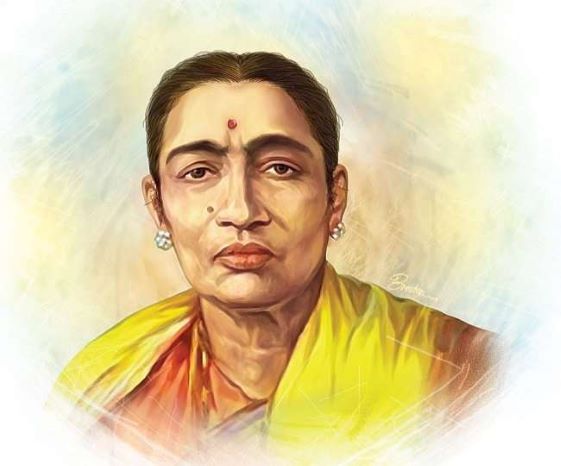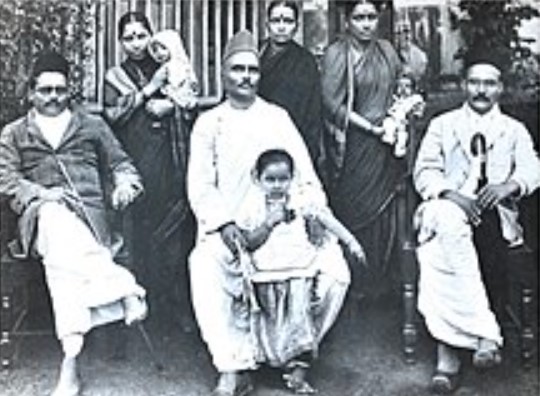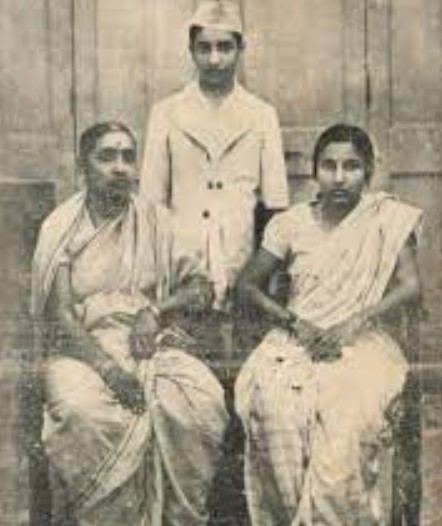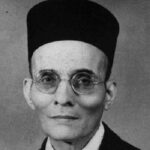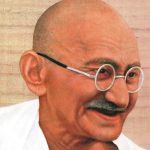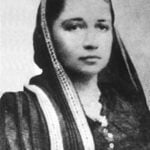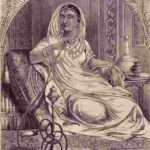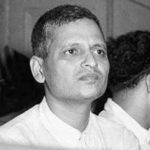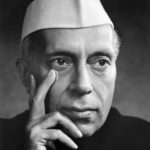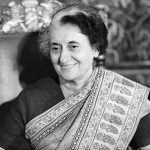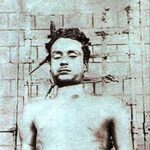Yamunabai Savarkar Age, Death, Husband, Children, Family, Biography & More
| Bio/Wiki | |
|---|---|
| Birth name | Yashoda [1]History Under Your Feet |
| Nickname | Mai [2]History Under Your Feet |
| Profession | Social Worker |
| Famous for | Being the wife of prominent Indian freedom fighter Vinayak Damodar Savarkar |
| Personal Life | |
| Date of Birth | 4 December 1888 (Tuesday) |
| Birthplace | District Thane, Maharashtra |
| Date of Death | 8 November 1963 |
| Place of Death | Dr. AK Talwalkar’s Colony Nursing Home in Dadar, Maharashtra |
| Age (at the time of death) | 75 Years |
| Death Cause | Prolonged Illness [3]History Under Your Feet |
| Zodiac sign | Sagittarius |
| Nationality | Indian |
| Hometown | District Thane, Maharashtra |
| Educational Qualification | She studied up to Class IV [4]Savarkar.org |
| Relationships & More | |
| Marital Status (at the time of death) | Married |
| Marriage Date | Year, February 1901 |
| Family | |
| Husband/Spouse | Vinayak Damodar Savarkar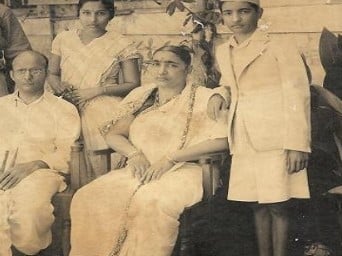 |
| Children | Son- Vishwas Savarkar (employee at Walchand Group and an author) 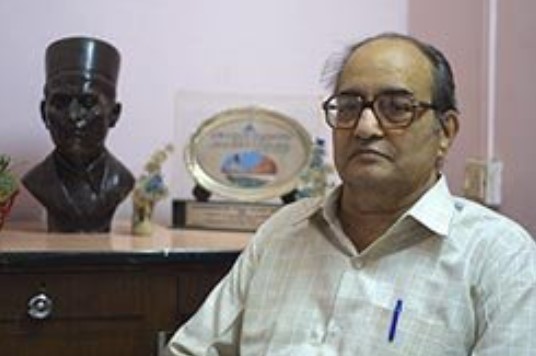 Daughter- Prabhat Chiplunkar Grandson- Ranjit Savarkar 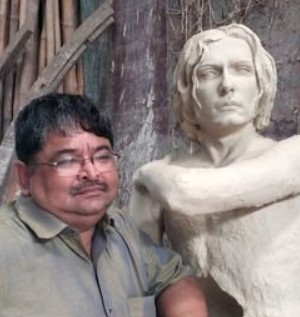 |
| Parents | Father- Ramchandra Trimbak (Bhaurao) Mother- Lakshmibai (Manutai) Chiplunkar |
| Siblings | She was the eldest of her four brothers and seven sisters. |
Some Lesser Known Facts About Yamunabai Savarkar
- Yamunabai Savarkar was an Indian social activist who is known for being the wife of Indian freedom fighter Vinayak Damodar Savarkar.
- Her father was the head of the Jawhar Principality in the Thane district of Maharashtra. She was brought up in a well-to-do family. Reportedly, she was a dark-complexioned girl, but her father did not need to make efforts to find her a suitable match. She was a good friend of Yashoda (wife of Vinayak Savarkar’s elder brother Babarao). The sharp intellectual abilities of Vinayak Savarkar attracted her father’s attention. In the meantime, Vinayak’s maternal uncle and elder brother Babarao were also finding a suitable match for Vinayak. Then, the alliance of Yamunabai and Vinayak was suggested by Savarkar’s maternal uncle.
- Soon after the alliance of Yamunabai and Vinayak, her father promised Vinayak that he would bear all his educational expenses in later life. Subsequently, after the marriage, Yamunabai pervaded the patriotic environment of Savarkar’s family. Vinayak Savarkar was a good poet who used to write patriotic poems, and Yamunabai was a good singer who used to lend her voice to these poems, and the other female members of the family would memorize them.
- The family environment of Vinayak Savarkar encouraged Yamunabai to join Atmanishtha Yuvati Samaj (Marathi for Self-respecting Young Women’s Society). This was an association of patriotic women, which was initiated by Babarao Savarkar’s wife Yashoda (Yesuvahini). The main aim of this organisation was to indulge more and more Indian women in nationalism and to make them aware of the political situations in India. They also tried to encourage these women to participate in the Indian freedom movement. This organisation had a group of 100-125 women including the prominent women Indian freedom fighters like Godumai Khare and Laxmibai Datar. The meetings of this organisation included the singing of the patriotic songs composed by Govind (Aba) Darekar. The songs composed by Vinayak Savarkar were also on their singing list. These women used to motivate each other by reading anti-British articles, which were often published in The Kesari. Before becoming a member of this organisation one had to take an oath. The oath read as,
In the name of the Motherland, Shivaji Raja who won freedom through war and Bhavani Mata who gives strength, I hereby give witness before Shivaji and Bhavani Durga Devi that I shall use swadeshi goods only, love my country more than my life, strive for my country’s freedom and help those who are doing so.”
- Vinayak Savarkar started studying at the Fergusson College soon after he was financially supported by his father-in-law. Savarkar used to visit his home to meet his wife, Yamunabai, during his college holidays. In December 1904, the couple parented a son named Prabhakar who died in 1905 after he suffered from smallpox. At the time of Prabhakar’s death, Vinayak Savarkar was in London. In 1906, Vinayak left for London where he was working as a Barrister. In India, the British police kept an eye on the family of Vinayak Savarkar due to his involvement in the revolutionary activities. Babarao Savarkar was sentenced to jail in the Andamans Islands after fifteen days of Prabhakar’s death. On the other side, Vinayak was arrested in London and was transported to India. During his journey to India, he made an epic escape at Marseilles and was re-arrested and brought to Nashik. Yamunabai Savarkar and her brother travelled from Trimbakeshwar to Nashik to meet her husband, Vinayak Savarkar. At Nashik, she did not get any help from her friends who were fearing the wrath of the British. They spent the whole rainy night in a temple in Tambat Ali, Nashik. The following day, she was allowed to meet her husband for only forty-five minutes.
- When Vinayak Savarkar was sentenced to jail at Andamans, Yamunabai Savarkar visited him in the Dongri prison in Mumbai. Reportedly, she got emotional after meeting her husband. Then, Vinayak motivated her and said that we were sacrificing our lives for the freedom of our country. This life was not merely for producing children after marriage and collecting the meagre things to establish a home. He added that such a life could also be led by the crows and sparrows then what was the difference between human life and animal life. He said,
If the Almighty shows compassion, we shall meet again. Till then, if you are ever tempted by the thought of an ordinary family life, remember that if producing children and collecting a few twigs to build a home is to be called married life, then such a life is led by crows and sparrows as well.”
Yamunabai replied that Vinayak must take care of him so that she could feel fulfilled. She said,
We are trying to do just that. As far as we are concerned, we have each other. If you take care of yourself, we shall feel fulfilled.”
- Soon after the meeting ended, Vinayak Savarkar walked thirty steps back with his arms raised reassuring his wife and brother that he could bear the weight of the handcuffs happily.
- When Vinayak Savarkar was released from Andamans jail, Yamunabai received a chance to meet him. He was then again imprisoned in the Ratnagiri district. In May 1924, Narayanrao, the younger brother of Vinayak, brought Babarao Savarkar and Yamunabai to Mumbai when the plague hit Ratnagiri. On 7 January 1925, Yamunabai gave birth to a baby girl and named her Prabhat. In the following year, they had another baby girl whom they named Shalini, who died in her infancy.
- Gandhi and his wife Kasturba were on a tour of Maharashtra on 1 March 1927. During a public meeting in Ratnagiri, Gandhi stated that he desired to meet Vinayak Savarkar, but at that time Vinayak was suffering from fever and was unable to meet Mahatma Gandhi. Later, Vinayak invited Mahatma Gandhi and his wife to his house. Kasturba went along with her husband to Savarkar’s place. Reportedly, this meeting lasted for ninety minutes during which in Vinayak’s kitchen, the pleasantries were shared by Yamunabai and Kasturba together.
- On 17 March 1928, Yamunabai gave birth to a baby boy whom they named Vishwas.
- On 26 July 1930, a public meeting of women was held under the leadership of Yamunabai at the Vithal Mandir in Ratnagiri. In this meeting, the women members tried to propagate the concept of ‘Swadeshi’ by widening their movements. On 9 September 1932, an inter-community dinner of women was attended by Yamunabai Savarkar, along with Madhavrao Bagal, who was the leader of Satyashodhak and had paid a visit to Ratnagiri. On the next day, Akhil Hindu yagnya was organised in Ratnagiri, and Yamunabai Savarkar and Vinayak Savarkar were the hosts of the event.
- On 20 August 1936, Yamunabai Savarkar consecrated a holy palanquin, which was founded on the occasion of the Akhil Hindu Nama Saptah in Maharashtra. On 26 September 1936, Yamunabai attended inter-community dining along with other 400 women revolutionaries including the low castes and ex-untouchables. This dinner was organised at the Patit Pavan Mandir, Ratnagiri.
- On 19 April 1941, the ladies’ wing of the Chitpavan Brahmin Sangh honoured Yamunabai for her social works and revolutionary agendas such as she motivated the women members of her organisation to enrol their young children in the Indian armed forces.
- On 30 January 1944, an Akhil Hindu Tilgul (sesame and jaggery) event was attended by Yamunabai. During the function, she delivered a speech in which she stated that entire India was her home. She said,
The nation is my home and my home is my nation.”
- On the 61st birthday of Vinayak Savarkar, a public function was organised by his party workers in his honour. Yamunabai joined Vinayak on this occasion.
- In December 1950, Yamunabai Savarkar was felicitated with a traditional sari and other auspicious items like a gold necklace and cash during a convention of the Hindu Mahasabha, which was organised under the chairmanship of Dr N.B. Khare in at Veer Savarkar Nagar in Pune. Her husband did not attend the event due to the vitiated atmosphere following the Gandhi Murder. Thousands of women attended this event. An author named M.S. Dikshit who released the biography of Yamnunabai was honoured with a pen by Yamunabai during the event. On this occasion, some renowned patriotic women delivered a speech in the honor of Yamunabai. These women included Shantabai Gokhale (Pune), Godumai Khare (Nashik), Saraswatibai Kavanikar, Malatibai Agarkar, Lele, and Sindhutai Godse.
- In 1956, Yamunabai Savarkar fell ill and the doctors suggested her bed rest. Later, she was shifted to Dr AK Talwalkar’s Colony Nursing Home in Dadar. In October 1956, she was taken back home. She was diagnosed with lymphoma in October 1963 and was hospitalised. On 8 November 1963, she passed away. On the death of Yamunabai, Vinayak Savarkar stated that the life of Mai had been fulfilled. He said,
Mai has passed. Her life has been fulfilled.”
- Vinayak Savarkar made a wish to his family members that the body of Yamunabai should be taken straight to the crematorium from the hospital and not to the Savarkar Sadan soon after the death of Yamunabai. Vinayak Damodar Savarkar did not attend the cremation of his wife, Yamunabai Savarkar. The reason he stated was,
I have already bid farewell to Mai. I do not feel up to it to go there.”
- Yamunabai Savarkar was the major supporter of Vinayak Savarkar in his campaigns for the social reforms in India.
- Reportedly, once, Vinayak Savarkar sheltered an ex-untouchable girl in his house in Ratnagiri. Then, Yamunabai Savarkar was the one who looked after that girl.
- Yamunabai stood beside Vinayak Savarkar when a mob attacked Vinayak and his home soon after the murder of Mahatama Gandhi.
- According to Vinayak Savarkar, the poem ‘Kamala,’ which was written by him at a jail, exactly matched the personality of Yamunabai Savarkar.
- Yamunabai Savarkar participated in the untouchability movement, which was organised in Ratnagiri before the independence of India.
- Some media sources claim that Vinayak Savarkar was an atheist while Yamunabai was a religious lady who used to worship Hindu deities every day. Vinayak never stopped Yamunabai from worshipping Hindu gods. [5]Jagaran News
References/Sources:

